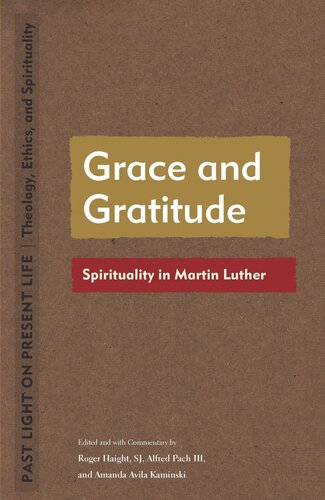

Most ebook files are in PDF format, so you can easily read them using various software such as Foxit Reader or directly on the Google Chrome browser.
Some ebook files are released by publishers in other formats such as .awz, .mobi, .epub, .fb2, etc. You may need to install specific software to read these formats on mobile/PC, such as Calibre.
Please read the tutorial at this link: https://ebookbell.com/faq
We offer FREE conversion to the popular formats you request; however, this may take some time. Therefore, right after payment, please email us, and we will try to provide the service as quickly as possible.
For some exceptional file formats or broken links (if any), please refrain from opening any disputes. Instead, email us first, and we will try to assist within a maximum of 6 hours.
EbookBell Team

4.7
86 reviewsMartin Luther (1483-1546) is a classic Christian author who spearheaded the Reformation and whose witness has relevance for life in the present-day world. Grace and Gratitude presents two texts that represent his spirituality. Because Luther wrote so much in so many different genres, the choice of only two texts provides a limited taste of his spirituality. But they open up a specific, central, and distinctive mark of his conception of the structure of Christian life. The name of the theme, justification by grace through faith, often spontaneously correlates with Luther’s name and his theology. The phrase points to a key theological doctrine that centered his thinking; it lay so deeply ingrained in his outlook that it sometimes explicitly but always tacitly shaped all his early theological views and bestowed a distinctive character to his ethics and spirituality. The two texts are chosen to illustrate how the conviction represented by the phrase draws its authority from scripture, especially Paul, and was discursively analyzed in an early foundational work on Christian life, The Freedom of a Christian. These texts do not represent all there is to say about spirituality in Luther’s thought by any means, and this part should not be taken for the whole. But the coupling of these texts penetrates deeply into what may be called Luther’s Christian spirituality of gratitude.
These books are introductory in character but deeply thoughtful in their interpretation of the Christian life. Traditional but refreshingly applicable to the present-day situation.